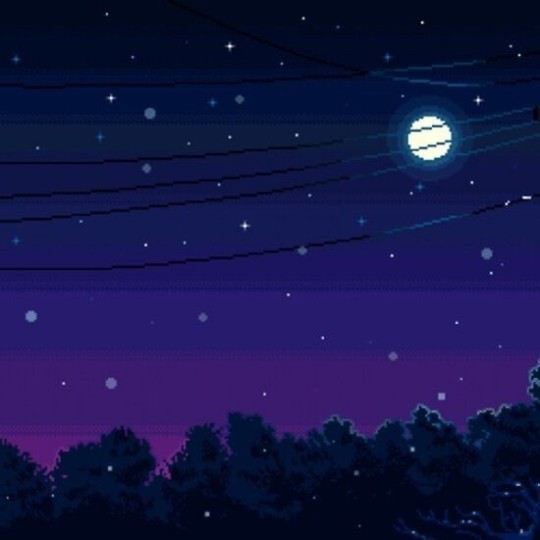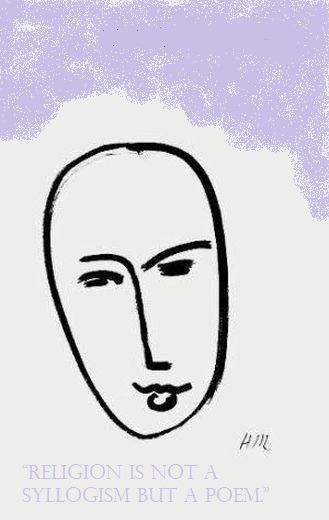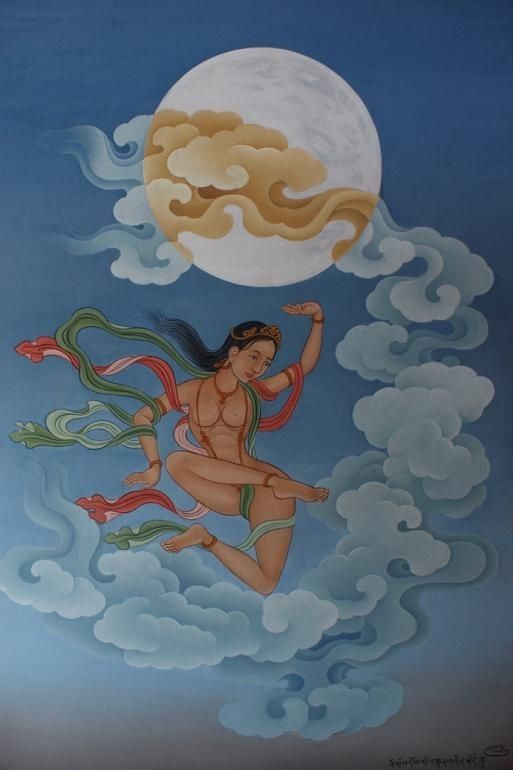#Po Chü-i
Text
Who says the moon is heartless?
It's followed me a thousand miles.
Po Chü-i, Traveling Moon
#Po Chü-i#Bai Juyi#Traveling Moon#moon#moon quotes#a thousand miles#companionship#full moon#Chinese literature#Chinese poetry#quotes#quotes blog#literary quotes#literature quotes#literature#poetry#poetry quotes#book quotes
344 notes
·
View notes
Note
Mind if I throw you a curve ball? I’m looking for Chinese writers/poets who were influential on Premodern Japanese literature besides Bai Juyi (aka Bo Juyi, Po Chü-i, Bai Letian, Po Letien, Haku Rakuten, etc.). Tang dynasty poets are pretty awesome but I need to branch out.
Here are a few that we came up with:
Zhuangzi (莊子, Sōshi): Zhuangzi, a Daoist philosopher and writer, influenced Japanese literature through the spread of Daoist and Zen Buddhist thought. His ideas about spontaneity and the unity of all things had an impact on Japanese poets and philosophers.
Tao Yuanming (陶淵明, Tōenmei): Tao Yuanming, a poet of the Eastern Jin Dynasty, was known for his pastoral poetry and themes of rural life. His influence can be seen in Japanese literature, particularly in works that celebrated the beauty of the countryside.
Su Dongpo (蘇東坡, So Tōhaku): Su Dongpo, also known as Su Shi, was a versatile Song Dynasty writer who excelled in poetry, prose, and calligraphy. His philosophical and literary works had an impact on Japanese literature, especially in the fields of poetry and essay writing.
Hopefully this helps!
140 notes
·
View notes
Photo

Quando il carbone
finì, iniziammo
a bruciare i libri, uno ad uno;
Prima la serie
di Bulwer-Lytton
e poi Walter Scott.
Diedero molto calore.
Verso la fine, a
febbraio, le fiamme
consumarono i Tragici
Greci e Baudelaire,
Proust, Robert Burton
e Po Chü-i. Il ghiaccio
sui davanzali era spesso.
Più per il bene del gatto,
dicemmo, che per noi stessi,
che stava rannicchiato, tremante,
davanti alla stufa
tutto l'inverno.
Weldon Kees, La fine della biblioteca, da Le poesie di Weldon Kees, 2003
25 notes
·
View notes
Text
Bai Juyi (also known as Bo Juyi) was a Chinese poet of the Tang dynasty (772–846 AD), and his poems had a significant impact on Japanese classical literature.
During the Tang dynasty, there were close diplomatic and cultural ties between the two nations, leading to the adoption and adaptation of Chinese literary forms in Japan.
His poetry often reflected a concern for common people and social justice. This resonated with Japanese poets and scholars who admired the clarity and accessibility of his writing.
Bai Juyi's influence on Waka can be observed in the adoption of certain themes, stylistic elements, and poetic techniques. Japanese poets admired Bai Juyi's ability to express deep emotions with simplicity.
Bai Juyi's poems often explored philosophical themes, including the transient nature of life, the beauty of nature, and the human condition.
Bai Juyi was known for his versatility, having written poems in various styles and on diverse subjects. His accessible language and relatable themes made his works appealing to a broad audience, including poets and readers in Japan who found inspiration in his approach.
Chinese literary works, including Bai Juyi's poems, were translated and adapted into Japanese.
Image: Bai Juyi (Chinese: 白居易, pinyin: Bai Juyi, Wade-Giles: Po Chü-i) (Xinzheng, Henan, China; 772 - 846) ; He was inspired by popular songs. His poetry was touched by values of Taoism and Buddhism.
edisonmariotti @edisonblog
.br
Bai Juyi (também conhecido como Bo Juyi) foi um poeta chinês da dinastia Tang (772-846 dC), e seus poemas tiveram um impacto significativo na literatura clássica japonesa.
Durante a dinastia Tang, existiram estreitos laços diplomáticos e culturais entre as duas nações, levando à adoção e adaptação de formas literárias chinesas no Japão.
Sua poesia muitas vezes refletia uma preocupação com as pessoas comuns e com a justiça social. Isso ressoou entre poetas e estudiosos japoneses que admiravam a clareza e acessibilidade de sua escrita.
A influência de Bai Juyi em Waka pode ser observada na adoção de certos temas, elementos estilísticos e técnicas poéticas. Os poetas japoneses admiravam a capacidade de Bai Juyi de expressar emoções profundas com simplicidade.
Os poemas de Bai Juyi frequentemente exploravam temas filosóficos, incluindo a natureza transitória da vida, a beleza da natureza e a condição humana.
Bai Juyi era conhecido por sua versatilidade, tendo escrito poemas em diversos estilos e sobre diversos assuntos. Sua linguagem acessível e temas relacionáveis tornaram suas obras atraentes para um público amplo, incluindo poetas e leitores no Japão que encontraram inspiração em sua abordagem.
Obras literárias chinesas, incluindo poemas de Bai Juyi, foram traduzidas e adaptadas para o japonês.
Imagem: Bai Juyi (chinês: 白居易, pinyin: Bai Juyi, Wade-Giles: Po Chü-i) (Xinzheng, Henan, China; 772 - 846); Ele foi inspirado por canções populares. Sua poesia foi tocada pelos valores do Taoísmo e do Budismo.

2 notes
·
View notes
Text




"Who says the moon is heartless? It's followed me a thousand miles"
Po Chü-i, Traveling Moon
4 notes
·
View notes
Text
Who says the moon is heartless? It's followed me a thousand miles.
— Po Chü-i, Traveling Moon
1 note
·
View note
Photo

Po Chü-i, from A Book of Luminous Things: An International Anthology of Poetry, “Starting Early” tr. by Arthur Waley
8 notes
·
View notes
Photo

Pruning Trees - Po Chü-i
Trees growing—right in front of my window;
The trees are high and the leaves grow thick.
Sad alas! the distant mountain view
Obscured by this, dimly shows between.
One morning I took knife and axe;
With my own hand I lopped the branches off.
Ten thousand leaves fall about my head;
A thousand hills came before my eyes.
Suddenly, as when clouds or mists break
And straight through, the blue sky appears,
Again, like the face of a friend one has loved
Seen at last after an age of parting.
First there came a gentle wind blowing;
One by one the birds flew back to the tree.
To ease my mind I gazed to the South East;
As my eyes wandered, my thoughts went far away.
Of men there is none that has not some preference;
Of things there is none but mixes good with ill.
It was not that I did not love the tender branches;
But better still,—to see the green hills!
12 notes
·
View notes
Quote
Sad ones can’t bear the slow years.
It’s those with no joy and no sorrow —
they trust whatever this life brings.
PO CHÜ-I (772 to 846), from “After Lunch��
in: “Classical Chinese Poetry. An Anthology”, translated from Chinese by David Hinton
23 notes
·
View notes
Text
The Philosopher by Bai Juyi
“Those who speak know nothing;
Those who know are silent.”
These words, as I am told,
Were spoken by Lao Tzu.
If we are to believe that Lao Ttzu
Was himself one who knew,
How comes it that he wrote a book
Of five thousand words?
16 notes
·
View notes
Text
A dragon will never be a god unless people themselves make it a god.
Po Chü-i, A Dragon in the Dark Lake
#Po Chu-i#Bai Juyi#A Dragon in the Dark Lake#dragon#Lunar New Year#Lunar New Year 2024#Chinese New Year#Chinese New Year 2024#Year of the Dragon#poetry#poetry quotes#Chinese poetry#quotes#quotes blog#literary quotes#literature quotes#literature#books#book quotes#text#words
14 notes
·
View notes
Text
February Lite
A strong short showeroverflows congested drains;a dog turd disintegrates on the rough grass;the scream in the nightwas not from next door;even upstairs i can hear the engine humSad, alas, the man who dreamt of Fairies!For a single dream spoiled his whole life.

View On WordPress
0 notes
Text
Brief Prayer To The Dakini
༄༅། །མཁའ་འགྲོའི་གསོལ་འདེབས་བསྡུས་པ་བཞུགས་སོ། །
Brief Prayer to the Ḍākinī
by Dodrupchen Jigme Trinle Özer
སྐྱེ་མེད་དབྱིངས་ཀྱི་མཁའ་འགྲོ་ཀུན་ཏུ་བཟང་། །
kyé mé ying kyi khandro kuntu zang
Samantabhadrī, ḍākinī of unborn basic space,
འགག་མེད་ལོངས་སྐུའི་ཞིང་ན་ཝཱ་རཱ་ཧཱི། །
gakmé longkü shying na wa ra hi
Vajravārāhī, residing in the unimpeded sambhogakāya realm,
གང་འདུལ་སྤྲུལ་སྐུ་ཡེ་ཤེས་མཚོ་རྒྱལ་མར། །
gang dül trulku yeshé tsogyal ma
And Yeshe Tsogyal, nirmāṇakāya taming each according to their needs,
གསོལ་བ་འདེབས་སོ་མཆོག་ཐུན་དངོས་གྲུབ་སྩོལ། །
solwa depso chok tün ngödrup tsol
To you I pray: please bestow supreme and ordinary accomplishments!
སྐུ་གསུམ་རྒྱལ་བའི་སྤྱི་གཟུགས་བླ་ན་མེད། །
ku sum gyalwé chi zuk la na mé
The unsurpassed embodiment of all the victorious buddhas of the three kāyas,
མཁའ་འགྲོ་ཡོངས་ཀྱི་མིང་པོ་ཧེ་རུ་ཀ །
khandro yong kyi ming po heruka
The heruka, who is a brother to all ḍākinīs,
མཁྱེན་བརྩེ་འོད་ཟེར་འཇིགས་མེད་གླིང་པ་ལ། །
khyentsé özer jikmé lingpa la
Khyentse Özer Jigme Lingpa—‘Light rays of wisdom and love’,
གསོལ་བ་འདེབས་སོ་མཆོག་ཐུན་དངོས་གྲུབ་སྩོལ། །
solwa depso chok tün ngödrup tsol
To you I pray: please bestow supreme and ordinary accomplishments!
གང་གི་བཀའ་གཏེར་བདུད་རྩི་རྒྱ་མཚོའི་བཅུད། །
gang gi ka ter düdtsi gyatsö chü
The one to whom the essence of the oceanic nectar of his words and revelations
རྣམ་གསུམ་དད་པའི་ཡུར་བར་ལེགས་དྲངས་པའི། །
nam sum dépé yurwar lek drangpé
Was perfectly passed on through the channel of threefold faith,
འཇིགས་མེད་འཕྲིན་ལས་འོད་ཟེར་དཔལ་འབར་ལ། །
jikmé trinlé özer pal bar la
Jigme Trinlé Özer Palbar— ‘Light rays of fearless activity blazing in splendour’,
གསོལ་བ་འདེབས་སོ་མཆོག་ཐུན་དངོས་གྲུབ་སྩོལ། །
solwa depso chok tün ngödrup tsol
To you I pray: please bestow supreme and ordinary accomplishments!
ཆོས་སྐུའི་མཁའ་ལ་སྙིང་རྗེའི་ཆུ་འཛིན་འཁྲིགས། །
chökü kha la nyingjé chu dzin trik
In the dharmakāya sky there gather clouds of compassion,
སྐལ་བཟང་འགྲོ་ལ་དབང་བཞིའི་ཆར་རྒྱུན་གྱིས། །
kalzang dro la wang shyi char gyün gyi
And the rain of the four empowerments showers down upon fortunate beings—
སྐུ་བཞིའི་དཔལ་སྟེར་རྩ་བརྒྱུད་བླ་མ་ལ། །
ku shyi pal ter tsa gyü lama la
To the root and lineage masters who bestow the splendour of the four kāyas,
གསོལ་བ་འདེབས་སོ་མཆོག་ཐུན་དངོས་གྲུབ་སྩོལ། །
solwa depso chok tün ngödrup tsol
I pray: please bestow supreme and ordinary accomplishments!
དེ་ལྟར་གསོལ་བ་བཏབ་པའི་མཐུ་ནུས་ཀྱིས། །
dé tar solwa tabpé tu nü kyi
Through the power and strength of this prayer of mine,
ཚེ་འདིའི་མི་མཐུན་རྒུད་པ་ཀུན་ཟད་ནས། །
tsé di mi tün güpa kun zé né
May all unfavourable circumstances and setbacks fade away,
ས་ལམ་ཡོན་ཏན་ཡར་ངོའི་ཟླ་བཞིན་འཕེལ། །
sa lam yönten yar ngö da shyin pel
May the qualities of the paths and stages increase like the waxing moon,
བདག་གཞན་དོན་གཉིས་ལྷུན་གྲུབ་འབྲས་སྨིན་ཤོག །
dak shyen dön nyi lhundrup dré min shok
And may my own and others’ welfare spontaneously come to fruition!
ཅེས་པའང་སྒྲུབ་བརྩོན་ནོར་བུ་བཟང་པོ་དང་། གཅོད་སྨྱོན་གྱིས་བསྐུལ་ངོར། འཇིགས་མེད་ཕྲིན་ལས་འོད་ཟེར་གྱིས་སྦྱར་བའོ།། །།
Jigme Trinlé Özer wrote this at the request of the diligent practitioner Norbu Zangpo and Chönyön.

4 notes
·
View notes
Text
Lyrik: Alt-Chinesische Lyrik 3
https://literaturradiohoerbahn.com/wp-content/uploads/2020/03/Lyrik-Chinesisch-Arthur-Waley-upload.mp3 Lyrik: Alt-Chinesische Lyrik 3
1946 veröffentlichte der Sinologe Arthur Waley eine Auswahl seiner in langen Jahren der Forschung erfolgten Übertragungen chinesischer Lyrik aus dem Zeitraum von 1000 vor Christus bis ca. 900 nach Christus. Wir setzen den kleinen Zyklus mit Gedichte von Po Chü-i…
View On WordPress
0 notes
Text
from Matsuo Bashō's Record of the Hut of the Phantom Dwelling
I’m not really the kind who is so completely enamored of solitude that he must hide every trace of himself away in the mountains and wilds. It’s just that, troubled by frequent illness and weary of dealing with people, I’ve come to dislike society. Again and again I think of the mistakes I’ve made in my clumsiness over the course of the years. There was a time when I envied those who had government offices or impressive domains, and on another occasion I considered entering the precincts of the Buddha and the teaching rooms of the patriarchs. Instead, I’ve worn out my body in journeys that are as aimless as the winds and clouds, and expended my feelings on flowers and birds. But somehow I’ve been able to make a living this way, and so in the end, unskilled and talentless as I am, I give myself wholly to this one concern, poetry. Po Chü-i worked so hard at it that he almost ruined his five vital organs, and Tu Fu grew lean and emaciated because of it. As far as intelligence or the quality of our writings go, I can never compare to such men. And yet we all in the end live, do we not, in a phantom dwelling? But enough of that -- I’m off to bed.
Among these summer trees,
a pasania --
something to count on
0 notes
Photo


( @archillect / @mrpunchnfriends )
Banded/ tesselated planet.
"On the Topic, 'The Three Dogmas Are Not One Dogma, Nor Are They Three Dogmas'
Better to hear
The rain outside my window
Tapping as it drops,
I turn my midnight lamp around,
Dimming its light against the wall."
--Emperor Fushimi (1263-1317), tr Earl Miner (Lojbanized here.), who comments: "Its last two lines echo Po Chü-i, the ninth-century Chinese poet [now known as Bai Juyi], and the three dogmas referred to in the title are the Void, the Phenomenal, and the Mean. Essentially, the separation of the senses shows that the dogmas are not one, but their association in the scene shows them not to be three."
Always on my Mind.
tr "the Desperado (de Nerval)"
I am the bereaved, the widower, the shadowy,
the Cathar prince of the devastated citadel:
My guiding star is snuffed, my galactic lute
carries Melancholy's sable pentacle.
You who consoled me in the dark of the sepulcher,
give me back Posilipo & the Mediterranean,
the fragrance that enchanted my sere despair,
& that arbor where the rose & grape are intimate.
am I Cupid or Apollo?....Poe or Byron?
the kiss of some dread queen still becrimsons my brow;
I have dreamed in the grotto where the siren plashes...
& twice have I crossed Acheron victorious:
practicing in turn on the lyre of Orpheus
moans of a mystic, sobs of a dying elf.
4 26 87
Fado.
When will i be able to return to my customary omphaloskepsis, cranking out poems like Cracker Jack prizes, & mildly decrying the awarding of treats to my rivals? I cannot sleep for seeing the faces of the untimely perished; daily i discover further inroads upon freedoms i took for granted; threats make the mullions rattle.
02 26 04
Eel and Well.
0 notes